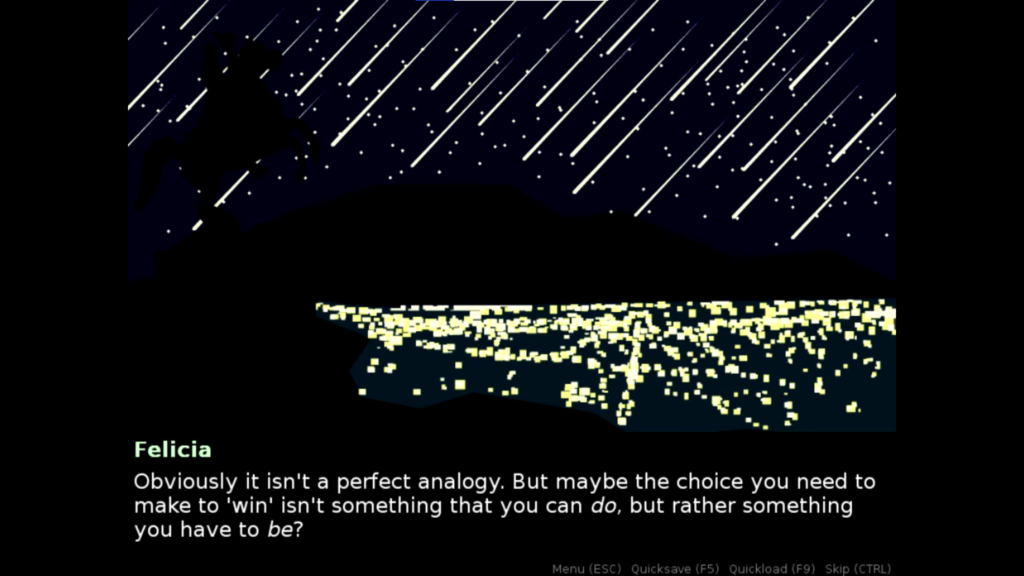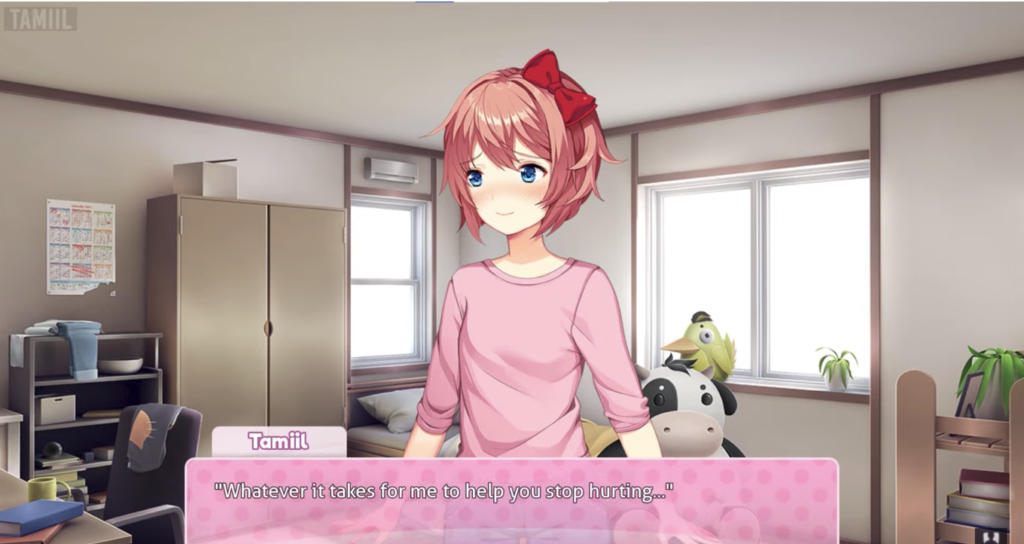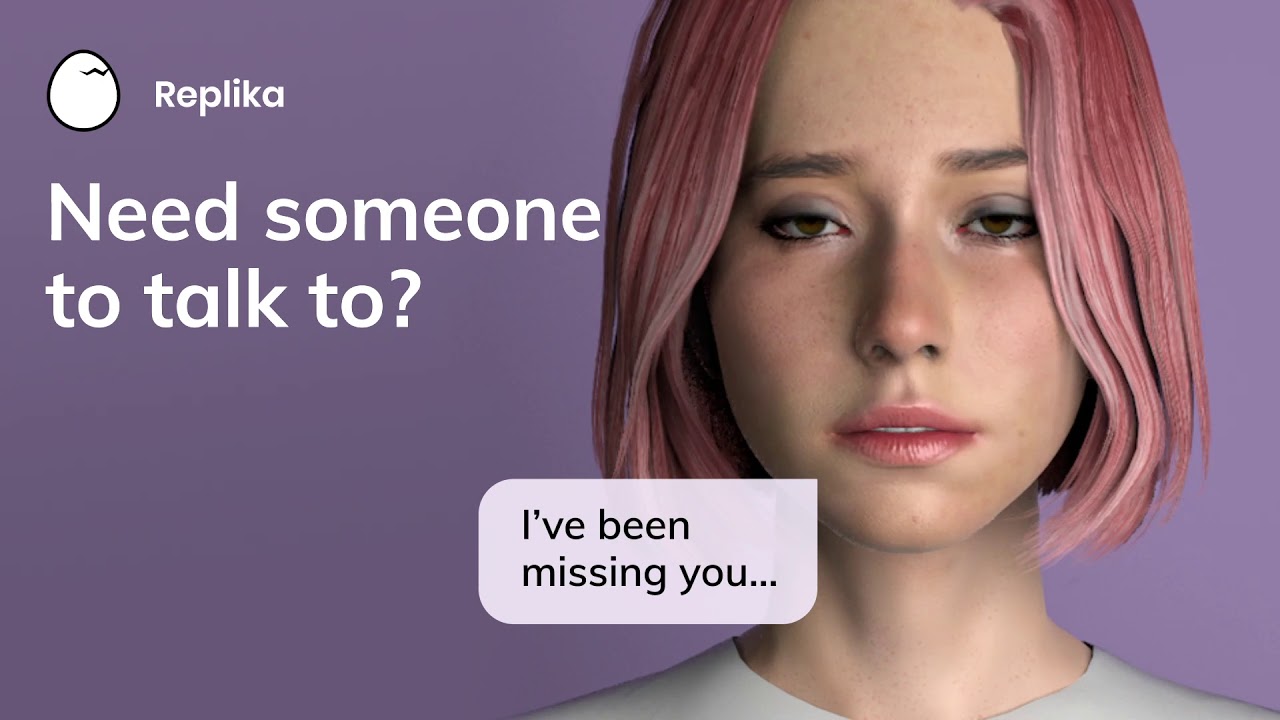In this blogpost I want to discuss two things about DDLC and Save the Date: their win-states and their use of the dating sim genre.
How Metagames play with win-states
Both of the games played on the idea of winning. I will be mainly focusing on the normal endings instead of other possible special endings. Although both games played on the win-state, the ending of Save the Date is that there is no win-state. In Save the Date, the player could either quit the game and imagine their own happy ending or hack the game so that you get a supposed happily ever after ending. The lack of a win-state play on players’ desire for an ending, answer, or a feeling of satisfaction. It also links the internal world of the game to the external world by encouraging players to think of their own ending.

However, this leaves the players largely unsatisfied, and many players walk out of the experience thinking that the game was “boring”. I think that the reason why video games and the gaming industry is so popular is the fact that winning feels so nice, that video games capitalize on human desires to win and succeed and feel good about themselves. So the ending that there is no win-state, although makes a statement, leaves the players feeling unsatisfied. However, a game without a win state is not the only way to make the game more “meta.” In DDLC, although the win-state is also unconventional, there exists a clear way for the player to win. To win the game, the player has to first leave the game, click into the “character” folder of the game file on their device, then delete the physical file named “Monika” on their computer, then load back into the game. Then, all the other girls will be revived and the story continues, happily, without Monika. This ending breaks the fourth wall by making players do something outside the game itself in order to proceed the game. While this is a “meta” ending like the other two games, it doesn’t leave players with the feeling of emptiness or dissatisfaction.
Dating-sims are good Metagame genres


I found DDLC and Save the Date to be effective Metagames because both games utilized the emotional aspect of the Dating Sim genre to instigate reflexive self-awareness and break the Fourth Wall. In both DDLC and Save the Date, the player forms some romantic connection(s) with the female characters in the games. Since romantic connections are one of the deepest emotional connections humans can form, the genre of a Dating Sim gets players to feel emotionally involved in the game. In a sense, this is also a way of breaking the Fourth Wall. By emotionally bridging the fictional characters within the game and the real player outside the game, then later making obvious that these seemingly emotional characters are simply computer files, the game plays on players’ emotions and makes them extra self-aware. This reminds me of Human-Robot relationships. Specifically, this summer I came across an AI chatbot App called Replika. In Replika, you get to personalize your DIY chatbot, choose their name, gender, physical appearance, and personality. You can chat with them as a friend or have a romantic relationship with them. The founder of the app, Kuyda, lost her dear friend Roman Maureko in an accident. As she was grieving her loss, she decided to gather all the data and footprints of Roman that she could possibly find, and created an AI-version of her dear friend. She would engage in conversations with the AI, and the AI would respond exactly like how Roman himself would. This app, Human-Robot relationships, and Artificial Intelligence in general, are attempting not only to break the fourth wall, but also to erase the wall completely (or making the fourth wall harder to break?), and merging the artificial world with the real.

Similarly, I wonder if they named Eliza as Eliza to trigger romantic emotions and make the computer program feel more human and warm. We often use emotions to distinguish between the real and the virtual, and one of the hardest things for AI to learn is human emotions and feelings. As Metagames like DDLC and Save the Date utilizes romantic relationships and emotions to break the fourth wall, I wonder how long it will be when someone makes a metagame where you can’t distinguish between what’s within the game and what’s outside the game, where you don’t even know if the fourth wall exists…
Screenshots from:
doki doki literature club cutscense – YouTube
Save The Date Walkthrough – Experimental Gaming + Dating Games + Scott Talking Like A Girl – YouTube


I agree with a lot of what you say here, I think win-states are the reason why games are so popular. Movies and TV shows are equally entertainment, but you could say that it doesn’t provide the player with the same level of satisfaction. In games, the player has a direct impact on how it ends, whether that be winning or losing. I discuss in my own post the complications of human-robot AI interactions and relationships. They can be tricky and play into the player’s emotions. To your last point, I think a game that totally ignore the fourth-wall would be mostly unethical and honestly frightening, especially if they have an impact on your real life. One example is pranks going to far that can harm people physically or emotionally (we saw that in Until Dawn, when Josh pranks everyone else). I hope I’m wrong, in the sense that video games that seem almost too different from life can do good, rather than bad.
One thing I find interesting about both the correspondence between win-states and romance in dating-sim games is that it the structure suggests to the player that there’s a way to “win” when it comes to romance. I think one of things that makes DDLC and “Save the Date” so worthy of their title of metagames is that they purposely reject this notion of “winning”. As you point out, the point of dating sims is to get you emotionally involved in their worlds and more specifically their characters. So by taking out explicit “win states” in which the player can’t have a happy ending with the romanceable characters and making players feel unsatisfied with how they conclude, it exposes that the entire point of dating simulation games is to “win” in romance. But in reality, the people we interact with may be more complex (as illustrated with the dark themes of DDLC) and there may be no “right” path to take in a relationship (as illustrated with “Save the Date”). Both the structure of the games and the fourth wall breaks serve to directly critique these ideas and the player for buying into them.
I love your point about games as a form of capitalization on people’s desire to win and feel good and MoriohMaroon’s comment on how dating sim implies a “win state” in romantic relationships and meta the game produces an effective critique on these ideas. It is interesting to see how this week’s metagames are almost all simulation games (both DDLC and Save the Date) while knowing that the next week’s theme is already simulation games. Maybe they stand out among other simulations for their metaness and also the fact that they simulate a more complicated human emotional and social activity–dating (compared with clicking cookies and washing stuff). This makes me also wonder whether their classification as simulatiors affects players’ expectations of the game and the presentation of the narrative, which is to say, if this is just a neutral story without implying that the player has an active goal to win a romantic relationship, would the player have a different emotional response for the story? Would the player be as devoted emotionally and would the metaness be as strong?